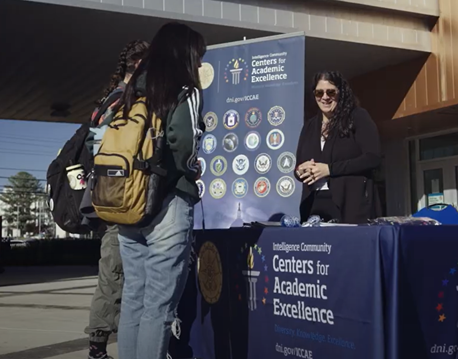ASU wins grant to create an Intelligence Community Center for Academic Excellence

Arizona State University was just awarded a grant to create an Intelligence Community Center for Academic Excellence (IC CAE). The new ASU Center will provide integrated, innovative, interdisciplinary educational pathways from the undergraduate through master’s degree level to prepare students—particularly those from underserved and diverse communities—for careers as intelligence professionals to carry out America’s long-term national security initiatives as part of a competitive, knowledgeable, and diverse workforce.
The 9-year $2.5 million grant is from the Office of the Director of National Intelligence (ODNI). The Principal Investigator (PI) is Peter Bergen, Professor of Practice and Co-Director of the Future Security Initiative (FSI), a collaboration between ASU and the DC-based think tank, New America. “This was a very competitive process, yet ASU distinguished itself through our profound commitment to holistic, interdisciplinary research and education, and our success at serving diverse undergraduate and graduate student populations.” The new Center is part of a growing number of FSI projects and related interdisciplinary efforts to expand ASU’s leadership on national and global security education and research.
ASU is a designated Hispanic Serving Institution (HSI) with nearly 33,000 Hispanic/Latino students enrolled, and ASU also has the largest American Indian enrollment of any major U.S. university and enduring relationships with Arizona’s 22 tribal nations. Nearly 33% of our enrolled undergraduates are first-generation college students and 33% are Pell-eligible—this in a student population numbering almost 80,000 on campus and another 66,000 online, making ASU one of the largest universities in the nation.
The IC CAE will identify and mentor undergraduate and graduate students from multiple academic fields – political science, engineering, sustainability, etc. – who will be designated as IC Scholars and provide them with access to information, courses, contacts, and multiple opportunities to support them in pursuing careers in the intelligence community.
The Center includes a focus on Less Commonly Taught Languages (LCTLs) as managed by co-Principal Investigator Keith Brown, Director of the Melikian Center: Russian, Eurasian and East European Studies, and Professor in the School of Politics and Global Studies. The Center also engages STEM students as coordinated by co-Principal Investigator John T. Lewis of the Ira A. Fulton Schools of Engineering, who served with the CIA for over 34 years and was previously the Deputy Director and Chief Technology Officer of the CIA Federal Laboratory.
Specifically, the new Center will create an interdisciplinary undergraduate Certificate in National Security and Intelligence can be paired with any bachelor’s degree program,whether in STEM, LCTLs, humanities, social sciences, public policy, or other areas offocus. It will also create an Intelligence Concentration in the already existing MA in Global Security which will equip students with specialized skills in intelligence analysis and policymaking, preparing them for advanced careers within the Intelligence Community (IC). This will also allow undergraduates to participate in a 4+1 accelerated MA in Global Security to complete graduate-level coursework in their senior year for dual credit, receiving both a bachelor’s degree in any field, as well as a master’s degree in global security, thereby saving time and money and more rapidly preparing for a career in national intelligence.
The new Center will organize multiple public-facing events on key intelligence issues, including an Intelligence Professionals Speaker Series and a new annual SouthWest Intelligence Symposium. This signature IC CAE event, cosponsored by local partners, will bring nationally known intelligence scholars and practitioners together to advance the state of the field while providing professional development opportunities for faculty and students and a recruiting platform for future enrollment.
In addition, the Center will provide for both faculty development and student development, including various research and publication opportunities. Additionally, the Center will work with community partners to make the undergraduate certificate accessible online and accreditable for non-traditional students and community college students who are planning a transition to ASU, as well as students enrolled at institutions other than ASU. This will broaden the program’s impact as well as ensure long-term sustainability. The Center will also work to implement a program to prepare students for the Clearance-Ready Workforce.
Through these IC CAE activities a student majoring in a critical language or relevant STEM or other field at ASU—will be able to pair that degree and knowledge base with a certificate in national security and intelligence, achieve designation as an IC Scholar, and transition seamlessly to an accelerated online MA in Global Security with a concentration in intelligence. Graduates of one or both programs will be inspired and well prepared to join the IC workforce and contribute to national security as intelligence professionals.